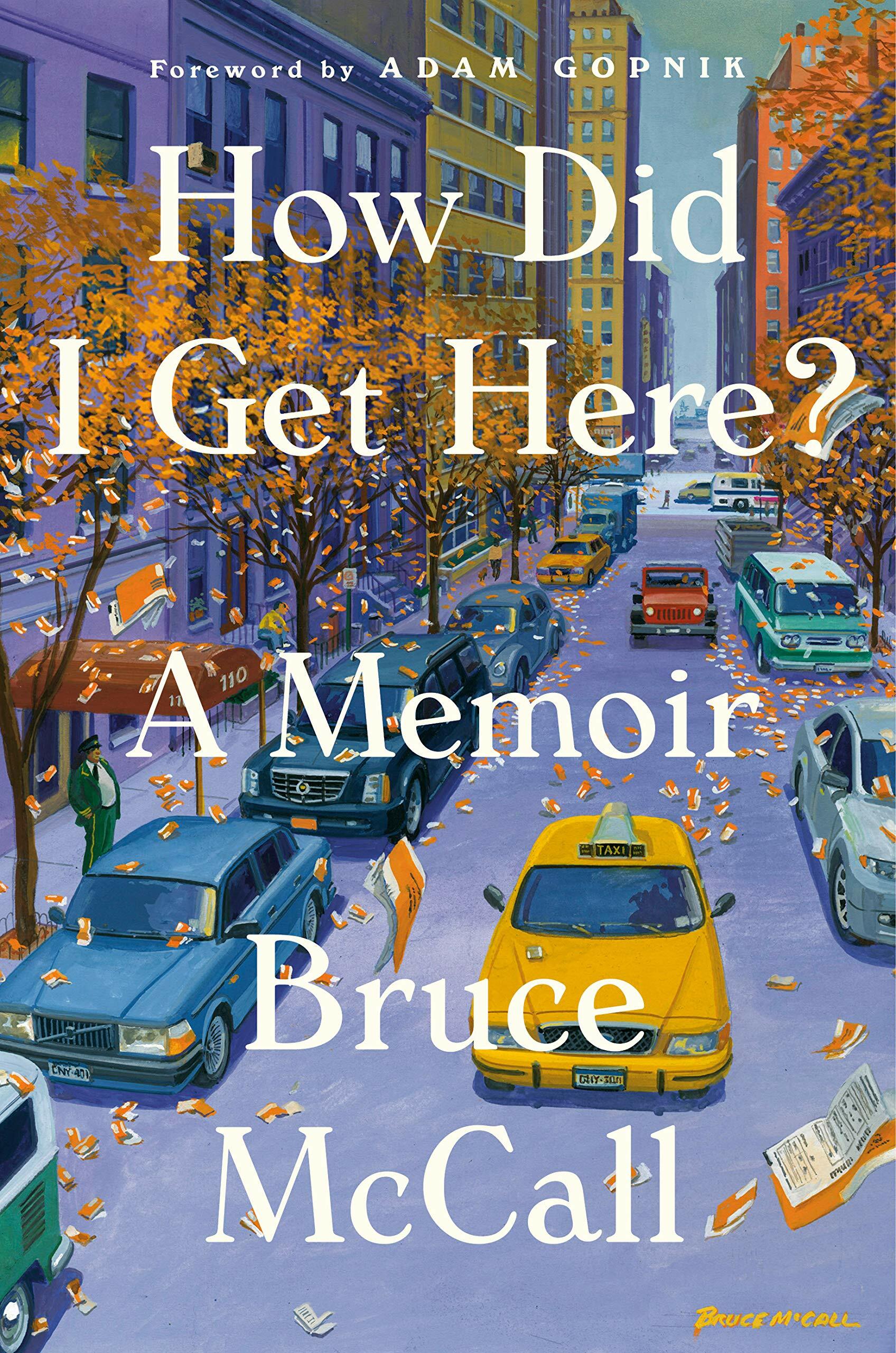
Can this no-nonsense, modest, if not at times diffident, memoir “How Did I Get Here?” by Bruce McCall be the last we’ll see or hear from this talented guy? The artist, illustrator and writer is best known for his over four-decade association with The New Yorker, doing more than 75 covers and many more “Shouts and Murmurs” humor columns.
McCall lived for a while in Amagansett and rented in Wainscott, about the time he joined the wacky, witty world of the original Harvard Lampoon, “the first seriously post-stupid comedy forum of the era,” which made satire “a viable presence and a commercial bonanza for the first time in American history.” Later, McCall would go on to other versions of the Lampoon and try his hand writing for Saturday Night Live. Eighty-five now and letting it be known toward the end of the book that he’s entering his seventh year after having been diagnosed with Parkinson’s, McCall’s still got a satirical ear and eye that suggest he’s too still too good to stop completely.
The implicit theme of this informative and informal memoir is persevere and be true to yourself, even if that means walking away from a high-paying position that doesn’t feel right. A high school drop-out who made it to the big time after repeated professional failures and an unhappy, mostly impoverished childhood in rural Ontario that haunts him still, McCall became a well-paid creative director at top ad top agencies. But he continually senses when he’s sold out or let himself be led astray. It takes time but he finally realizes that what he loves the most is painting and drawing.
“How Did [He] Get Here?” McCall knows how. The question before him is why, and his answers prove instructive for readers in any discipline who will identify with his slow struggle and ambivalent accomplishments. The memoir details his restless aspirations, especially in light of his estranged home life — an alcoholic mother, an indifferent, absent father, “parents who hadn’t wanted six kids but ignored birth control.” As New Yorker writer Adam Gopnik says in a brief introduction to the book, McCall has a “cheerfully pessimistic and self-deprecating nature.” It proves endearing as much as revealing.
He’s frank about what he missed of so-called normal life growing up, but he says he was also lucky that whatever their failings, his Philistine parents loved reading and had lots of books around. McCall devoured them, his salvation, even as he was regarded as a “dolt” at school and dropped out to get away. He drew constantly (“survival therapy”) but also learned to write by reading. No surprise, of course, that his self-taught talents took a satirical turn, and that he honed a crap detector for himself and others.
What others might see as self-sabotage in his erratic career, McCall sees as savvy hardscrabble reluctance to fit in, in face of hypocrisy or corruption — most of the time. He gave his best shots when he needed work, but never lost a sense of proportion or value, even as he saw flaws in superiors he learned from. He became an expert about cars which he loved — racing them, drawing them, writing about them, promoting them. He knew the difference between quality and junk (the “inanity of stupendous irrelevance”), the marketing doers vs the hustling pretenders. He could not abide phonies, materialists, sloppiness anywhere he worked.
Remarkably, even as he gained stature as a top-tier creative adman, after years of rejection or being ignored usually by younger, less talented execs, he ascribes most of his mid-life achievements to luck and connections, even as he acknowledges his worth: “I could draw better than any a/d [assistant director] I ever worked with (a fact, not a boast).” The memoir is an unusual mix of pride and humility, assertiveness and grateful thanks to those who stepped in to help him. He is proud that as a “vulgarian upstart from nowhere, without an education to speak of, who didn’t belong,” he succeeded. And then knew when to walk.
There’s something admirable in his bringing up his failures — he dislikes commercial art and writing ad copy for TV. He succumbs when he needs work, even as he laments the loss of the power of print.
“How Did I Get Here?” is a self-critical tribute to hard work and honesty. As he looks back, he sees that he has gained “a greater sense of connection” than he had in his earlier life — “to the world at large, and to myself as an artist.” That word, “artist” is, significantly, the last word of the book.